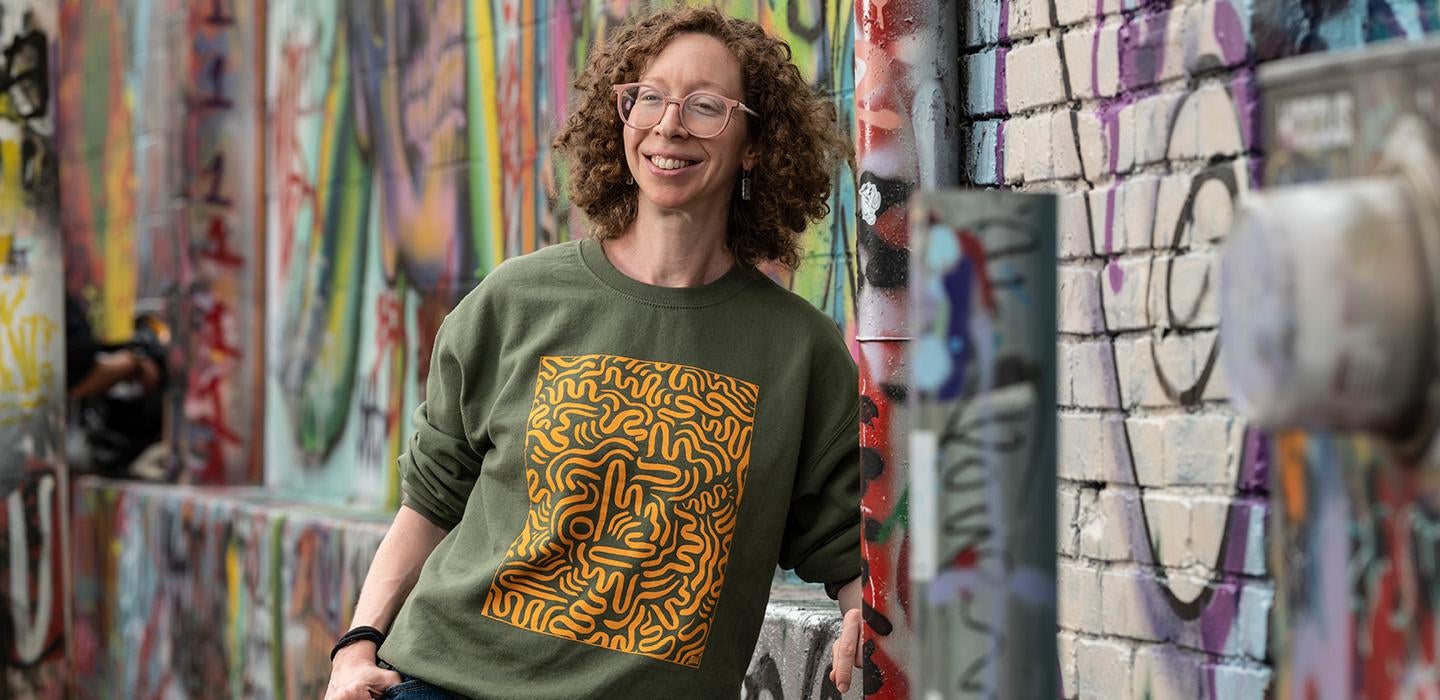
Subscribe to Pittwire Today
Get the most interesting and important stories from the University of Pittsburgh.A good pair of walking shoes is essential research equipment for Caitlin Bruce, an associate professor of communication in the Kenneth P. Dietrich School of Arts and Sciences. Her work exploring how murals and graffiti vivify public spaces has led to jaunts through the streets and alleys of Paris, Mexico City, New York, Chicago and neighborhoods surrounding the University’s Pittsburgh campus.
Public art, she says, is fundamental to the fabric of communities.
“When people talk about the impact of public art in an area, they often speak of positive, energetic shifts in their neighborhoods. The art can invite viewers to experience a kind of warmth, intimacy and joy,” Bruce says.
And its influence extends beyond the visual realm. Bruce adds that artists’ partnerships with stakeholders — residents and schoolchildren, for example — amplify voices and celebrate their experiences.
Her forthcoming book, “Voices in Aerosol: Youth Culture, Institutional Attunement and Graffiti in Urban Mexico,” is a case study of a Mexican city government’s shifting relationship with graffiti artists over an 18-year period. Bruce chronicles what happened when writers and officials in León, Mexico, introduced a legal graffiti program and its bearing on urban planning, local politics and gentrification.
Closer to home, Bruce works in what’s called a permission space, or legally sanctioned area, in the alley beside Trace Brewery in Pittsburgh’s Bloomfield neighborhood. Extending the length of a city block, the corridor is a place where anyone can leave their mark in paint.
“It’s a vibrant, oxygenated space where people across generations can create in a low-risk environment. In a way, it's a place of healing, because people can safely grow their skill set and find community,” Bruce says.
She has contributed to Pittsburgh’s public art scene not just as a scholar but as an incubator. In 2016, Bruce co-founded Hemispheric Conversations: Urban Art Program with multidisciplinary creators Max Gonzales, Oreen Cohen and Shane Pilster. The collaboration’s aim is two-fold: provide educational opportunities to youth and adults and create a framework where scholars and street artists can converse about the aesthetics of urban art production. The project is an intercultural exchange for muralists in Pittsburgh; Chicago; León, Mexico; Mexico City and Buenos Aires, and to date, the group has sponsored eight murals in Pittsburgh, Rankin, Millvale and New Kensington, Pennsylvania.
Bruce received a Pitt 2020-21 Momentum Priming Grant supporting her work with Hemispheric Conversations. A 2023-24 Momentum Fund grant will foster her work telling visual stories about Pittsburgh communities grappling with crisis and attempting to heal. The initiative will also generate three murals reflecting community narratives and a gallery show and catalogue.
Students enrolled in Bruce’s visual culture classes benefit from her vast knowledge of Pittsburgh’s public art and her extensive art world network. Her classes visit the Maxo Vanka murals in St. Nicholas Croatian Catholic Church in Millvale, Pennsylvania, and the murals and art installations at Carrie Blast Furnaces National Historic Landmark in Swissvale, Pennsylvania. She also leads walking tours of murals close to the Pittsburgh campus.
Another perk: graffiti writers and muralists are frequent classroom guests.
“Who better to learn from than the practitioners,” Bruce says.
— Nichole Faina, photography by Aimee Obidzinski


